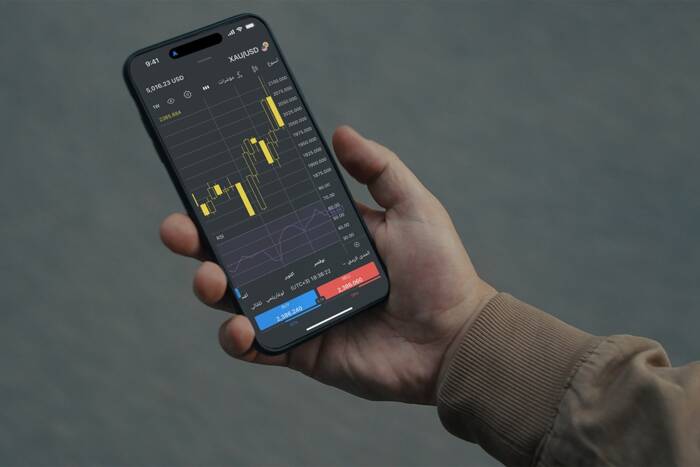In recent months, financial markets have seen a notable shift in trading behavior. Many traders are turning their attention away from traditional currency pairs and opting for precious metals, especially gold. The reason? Throughout history, certain global events, such as the upcoming US elections, have tended to create market volatility. In times like these, traders are turning to assets traditionally considered “safe havens.”
To ensure their traders can benefit from this trend, Exness has once again taken the lead by reducing spreads on gold CFDs by 20%*. This strategic decision is in line with Exness’s commitment to always offer the best trading conditions, even in times of volatility.
Triggers for market volatility
Market volatility is a key driver of gold’s popularity as uncertainty surrounding geopolitical tensions increases. Couple this with ongoing concerns about high inflation eroding purchasing power, and it becomes easier to understand why traders are looking to gold.
Changes in monetary policy also affect the forex market and gold prices. When central banks decide to raise or lower interest rates, they influence the valuation of currencies and influence economic growth. In such times, many traders view gold, as opposed to stocks or currencies, as a more effective way to hedge against market risks.
Exness understands these market dynamics and uses its technological edge to keep spreads as tight as possible, something other brokers struggle to do.
The impact of economic events and monetary policy on gold
If the Federal Reserve (the Fed) chooses an aggressive policy that stimulates the US dollar, this could lead to lower gold prices. (This is because gold is primarily priced in USD, meaning Fed decisions affect the price of gold.) A perfect example was the 2022-2023 rate hike cycle, where the Fed sharply raised rates. This movement, from almost zero to more than 5%, put significant pressure on the gold price.
The downside of this phenomenon was visible in the third quarter of 2024. The Fed indicated that it would cut interest rates because inflation had fallen, a decision that weakened the US dollar. These types of accommodative policies often boost demand for gold, as the weaker dollar makes gold more affordable for traders using other currencies.
What else affects gold?
However, the US dollar is not the only factor that influences the gold price. Market demand for physical gold, whether for jewelry or industrial use, also plays an important role in gold prices, with China and India being the major players. Beyond these influences, the fundamentals of supply and demand have always played a role in the gold industry; this includes disruptions in gold mining or shifts in central bank reserves.
So far this article has focused on long-term trends, but what about the spot price of gold? The spot price of gold is also sensitive to specific events and data releases, such as inflation reports, speeches by central bank officials, economic growth indicators, etc. These can cause price fluctuations in currency pairs, causing traders to look for gold as an alternative.
Another attractive factor of gold is its liquidity. Strong demand for gold-related assets allows traders to enter and exit positions more smoothly. Gold’s ability to respond quickly to economic events further contributes to its liquidity. Essentially, the faster an asset can change hands, the more liquid it becomes.
A final advantage of gold is that it is a store of value. During market turbulence, gold can be sold for cash, with the price falling as more positions are liquidated. A perfect example occurred in 2008, when Lehman Brothers Bank failed. Gold prices fell sharply as investors flocked to cash and liquidated their non-cash investments.
Gold CFD Traders and Exness
The way gold responds to these events provides traders with an ideal opportunity to showcase their skills and take advantage of the market’s ever-changing tides. However, there is more to trading gold CFDs than just understanding these market forces; there are trading costs that can erode profits.
This is where Exness’s value proposition proves its worth. Exness has become the broker of choice for many traders as it aims to maximize traders’ profits by combining technology-driven solutions with a customer-centric business model.
Smaller spreads** mean lower transaction costs: Exness’s tighter spreads reduce the difference between gold buying and selling prices, reducing the cost of entering and exiting trades. Smaller spreads provide significant savings for active traders and investors using scalping strategies.
Higher trading power: With lower costs, traders can seize opportunities even on slight price movements because they don’t need a significant price change to cover the spread. For larger trades, a smaller spread can lead to significant savings on each trade.
More and more traders are discovering the benefits of trading gold CFDs with tighter spreads with Exness. This is especially true for those who don’t want to overpay their agent.
Gold CFD trading has its challenges, but its rising popularity shows how valuable it can be to many trading portfolios. As with any financial instrument, success in gold CFD trading means being smart about risk management. For seasoned traders looking to take advantage of every advantage, you want a broker as strong as you are, and trading gold CFDs with Exness opens up a new world of possibilities.
*Best spreads refer to the average or maximum spreads offered by Exness, excluding broker commissions for XAUUSD during the first two seconds after high-impact news, from January to May 2024, compared to five other major brokers.
**Spreads may fluctuate and widen due to factors such as market volatility, press releases, economic events, when markets open or close and the type of instruments being traded.


